
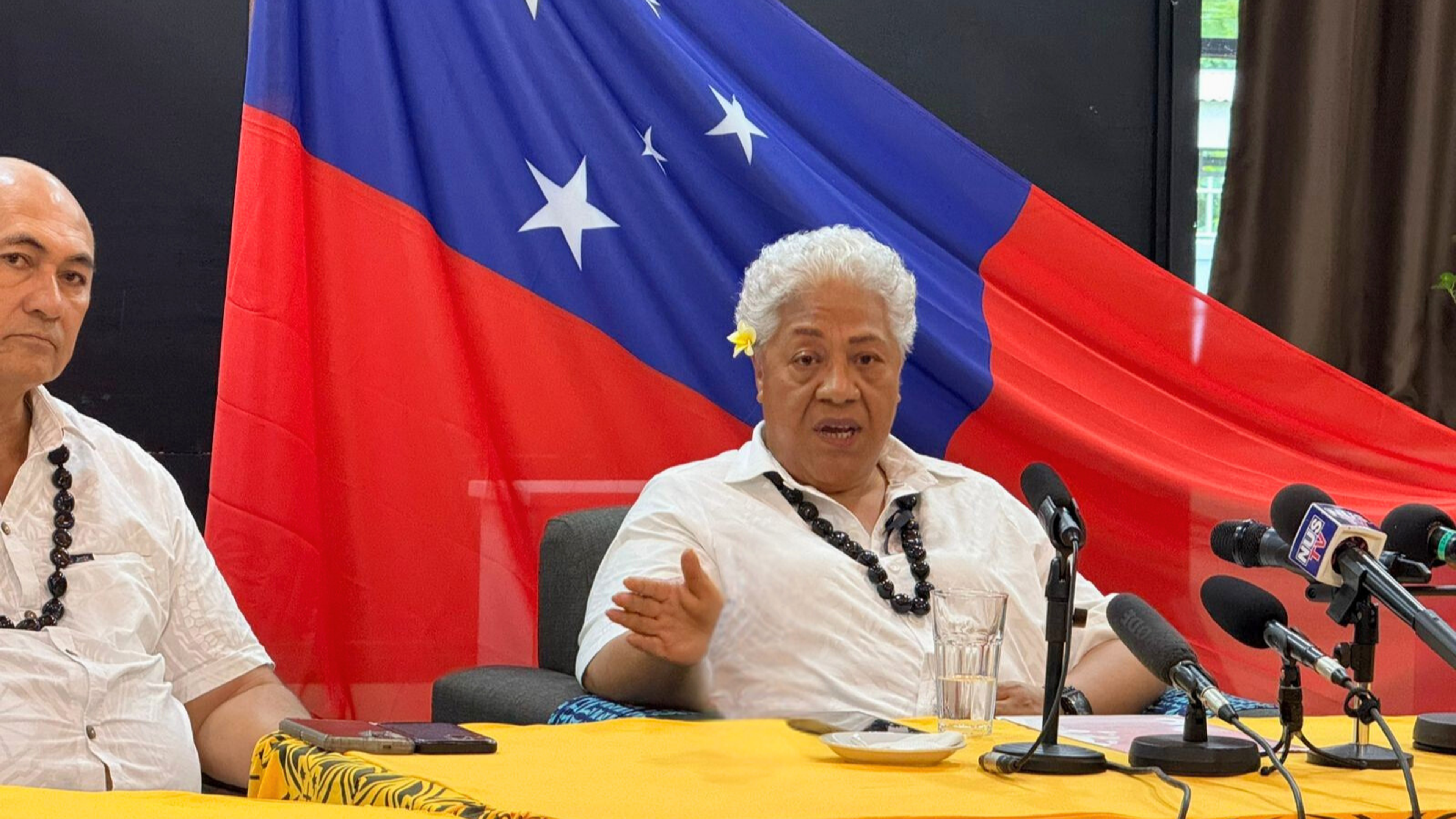
Fiamē Naomi Mataafa and her caretaker cabinet ministers congratulated Laaulialemalietoa Leuatea Polataivao Fosi Schmidt and FAST, while vote recounts have begun in the District Court.
Photo/Junior S Ami
Sāmoa enters post-election phase with recounts, petitions and transition of power
Court-supervised recounts begin this week as outgoing Prime Minister Fiamē bids farewell.



UK royal arrest sends shockwaves as Jeffrey Epstein files reference Pacific islands - reports
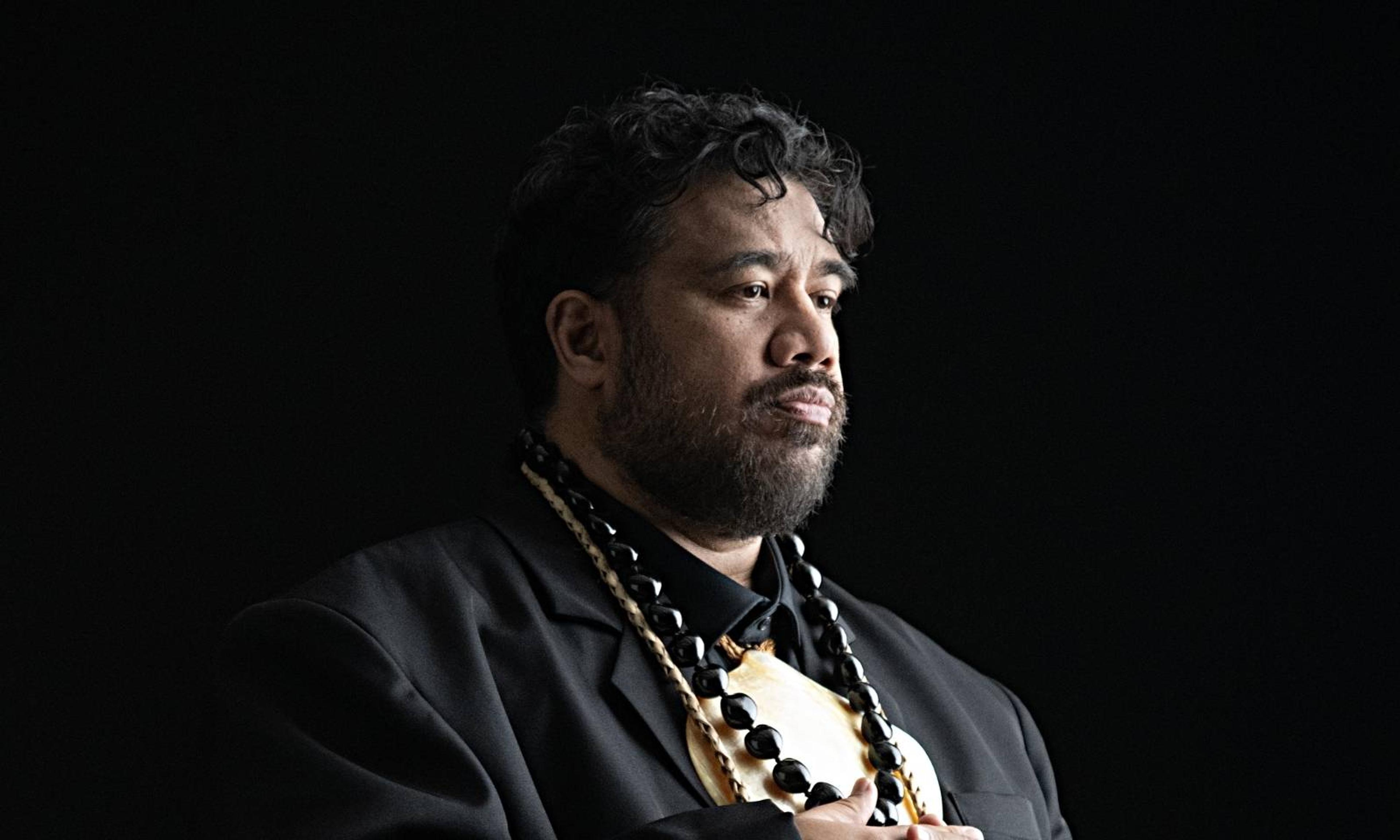
Second Apology: Fijian artist’s bold new film demands more for Pacific communities




UK royal arrest sends shockwaves as Jeffrey Epstein files reference Pacific islands - reports

Second Apology: Fijian artist’s bold new film demands more for Pacific communities

The next phase of Sāmoa’s electoral process is underway, with the Ministry of Justice confirming the start of multiple vote recounts this week, while the window for election petitions is now open.
Head of the Ministry of Justice and Courts Administration, Papalii John Taimalelagi, told local media that 11 recount applications were lodged following the official declaration of results on 5 September. Ten requests were submitted by unsuccessful candidates from the Human Rights Protection Party (HRPP), while one involves a contest between two independents.
Under the Electoral Act 2019, candidates have three days after official results are announced to request a recount.
At the close of the final count last week, officials from the Office of the Electoral Commission (OEC) confirmed that ballots and ballot boxes would be stored at OEC headquarters in Mulinuu.
“The same counting process that was undertaken by the Office of the Electoral Commission will be carried out again in the District Court,” Papalii says.
“Under the law, ballots must be delivered to the courts by the Commission for the recount. The recount itself is restricted; only the judge or a designated appointee is permitted to be present.
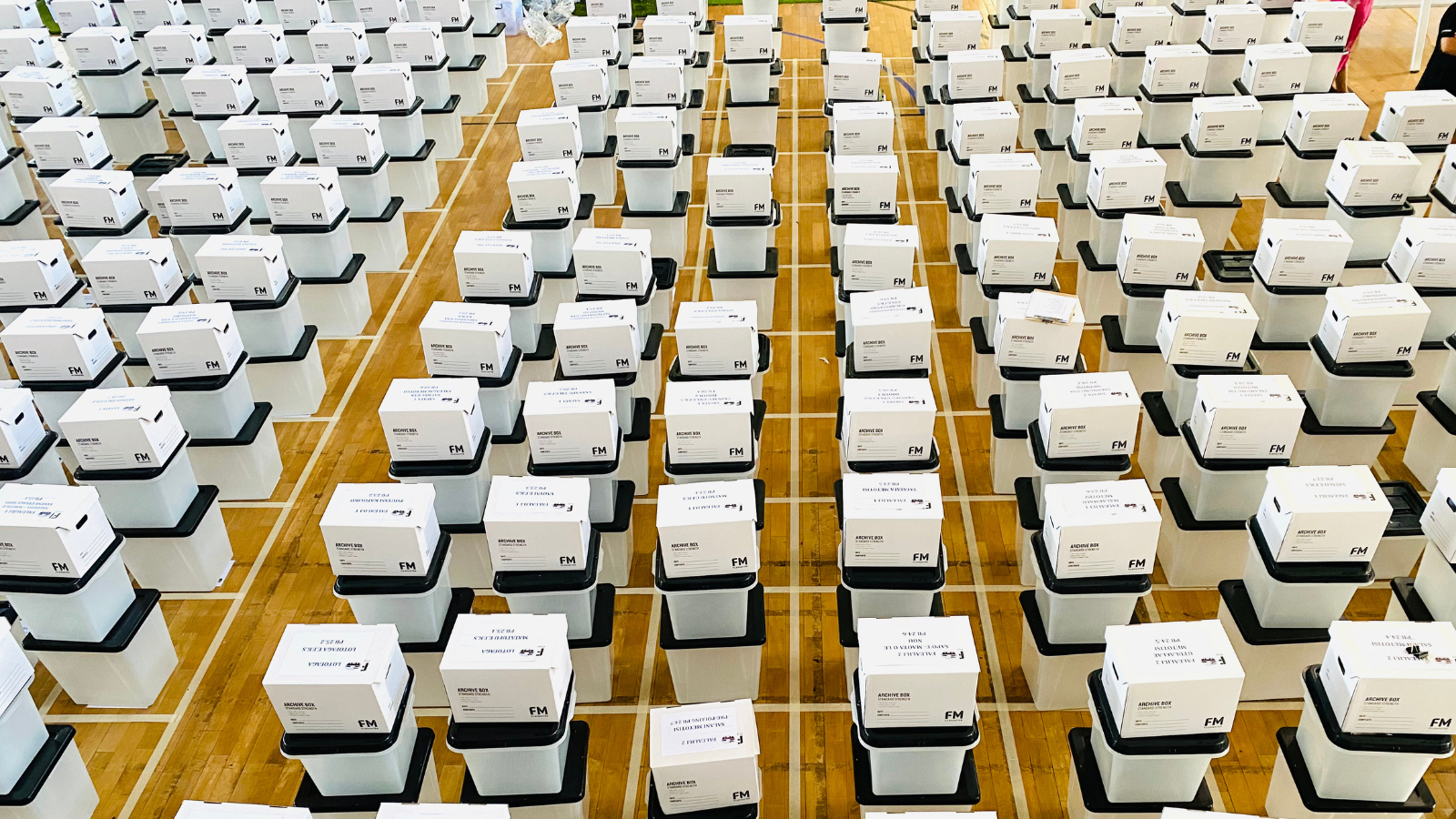
A recount of votes in 11 districts has begun, with access restricted to the District Court judge and nominated staff. Photo/Anetone Sagaga
“No police officers or observers will be allowed inside the court.”
Papalii notes there have been previous instances of recounts, but they did not change the final result or the candidate who won. However, if there is any change, the result will be certified back to the OEC, which must then issue an amended writ of election to the Head of State.
Alongside recounts, Papalii confirmed that petitions must be filed within 10 working days, by 19 September, with counter-petitions due five days later, on 26 September. Each petition will be heard by two Supreme Court judges, scheduled in the order in which the paperwork is received.
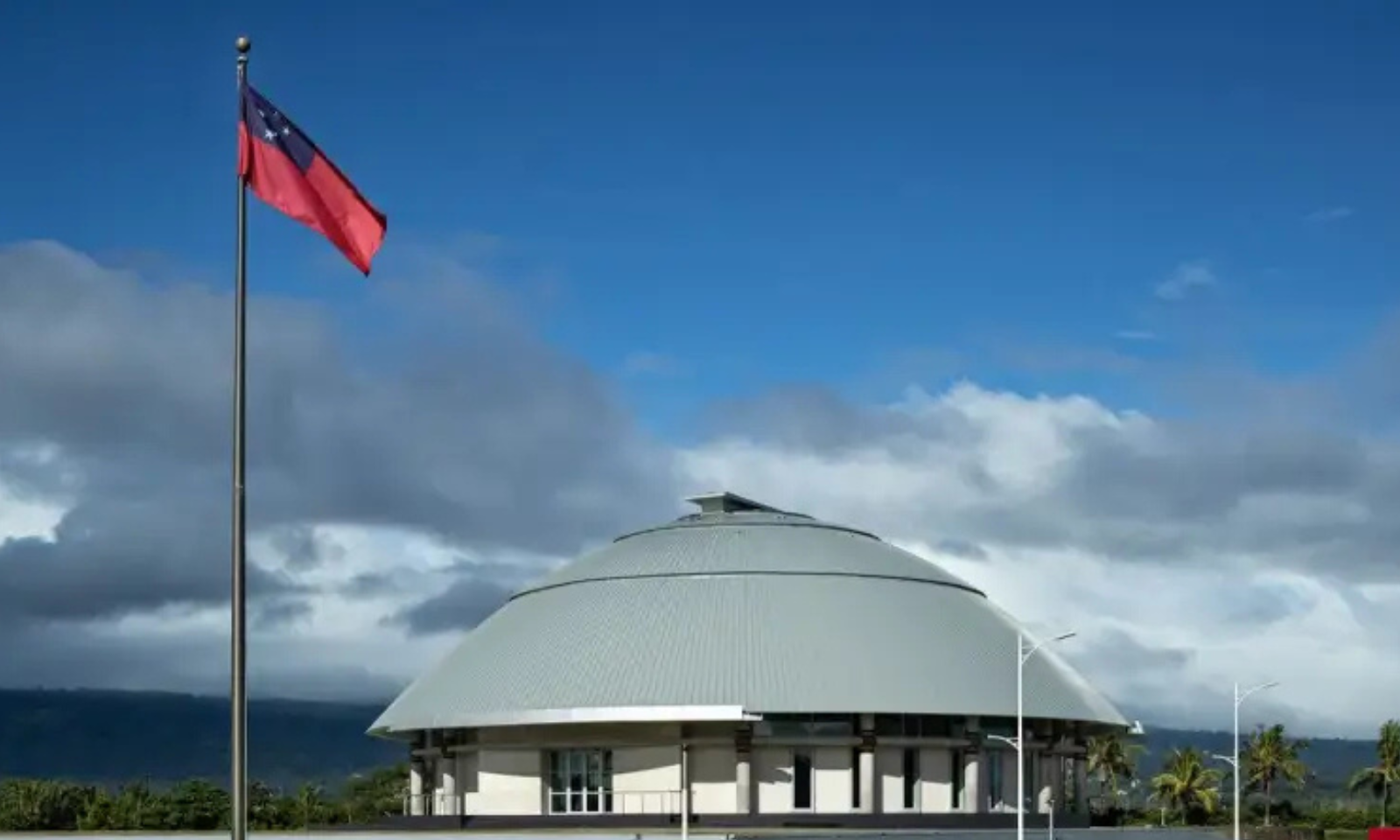
Sāmoa's 18th Parliament will convene on 16 September, where Prime Minister-elect Laaulialemalietoa Leuatea Polataivao Fosi Schmidt will be sworn-in as the new leader of the House. Photo/Supplied
The law does not prevent Parliament from convening while petitions are pending. Papalii says rulings are likely to be finalised before the year’s end and should not affect parliamentary timelines.
He stressed that electoral petitions are civil matters, but if judges find evidence of corrupt practices, cases will be referred to the Attorney-General for prosecution. A proven case of corruption against a winning candidate would void their election and trigger a by-election. Decisions made by the Supreme Court on petitions are final and cannot be appealed.
Meanwhile, outgoing Prime Minister Fiamē Naomi Mataʻafa addressed the nation, thanking voters, the Electoral Commissioner and staff, police, and observers for their roles in safeguarding what she called a “free, fair, and transparent” election.
“I extend my sincere appreciation to the voters who turned out to exercise their fundamental right to vote,” Fiamē says. “Your voices matter, and the choices you made in electing your representatives in Parliament over the next five years will hopefully deliver to your expectations for a better Sāmoa.”
Fiamē congratulated Prime Minister-elect, Laaulialemalietoa Leuatea Polataivao Fosi Schmidt, and offered a prayer for wisdom and courage to lead with dedication and integrity.
In response to questions about possible charges against Laauli stemming from comments he made during the FAST roadshow alleging her involvement in a high-profile murder case, Fiamē briefly stated: “We’re still preparing.”
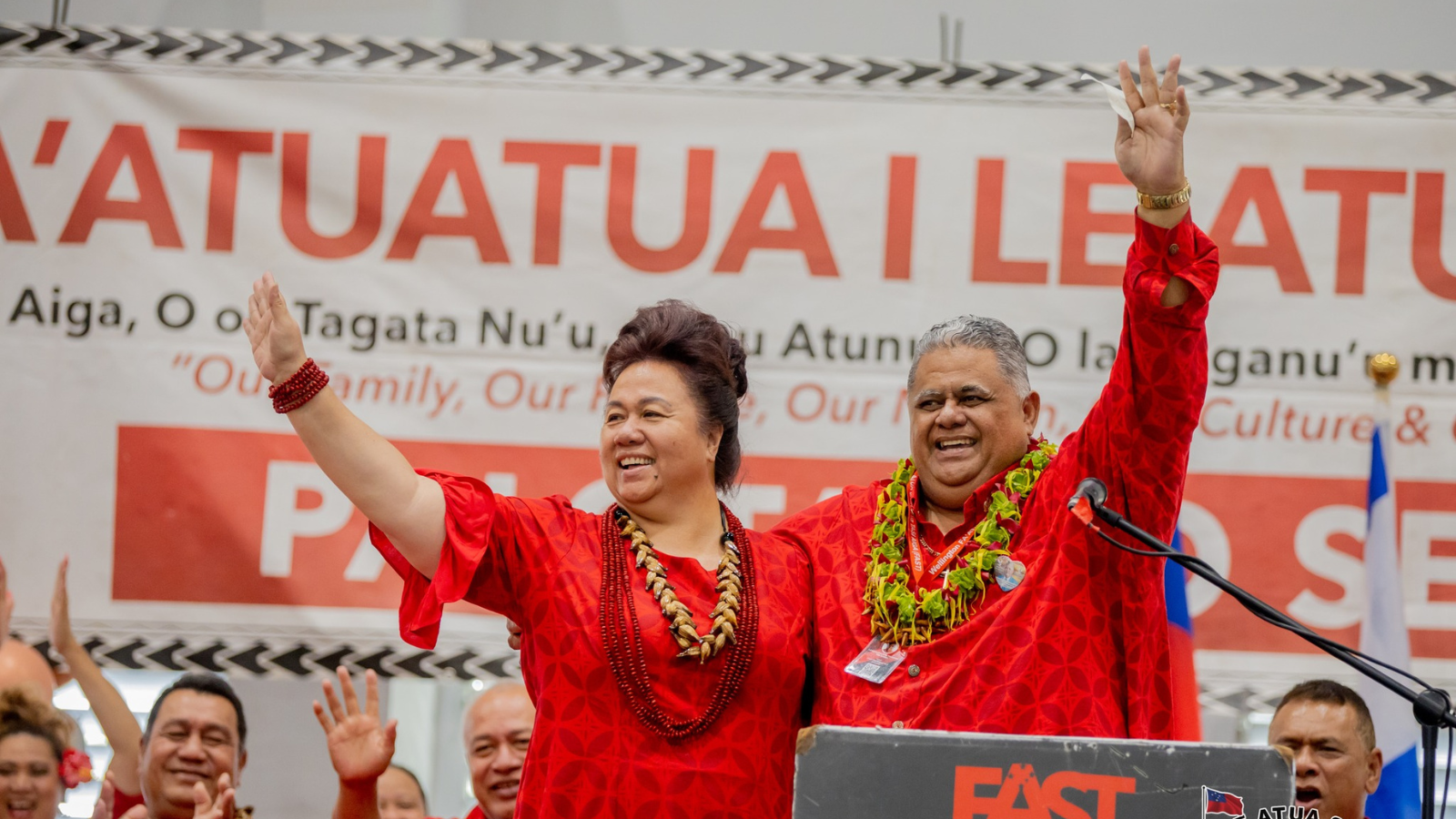
Sāmoa will have new leadership next week with the swearing-in of FAST Chairman, Laaulialemalietoa Leuatea Polataivao Fosi Schmidt. Photo/FAST
Reflecting on her government’s term, Fiamē highlighted Sāmoa’s leadership in climate diplomacy, the hosting of the Sāmoa Agreement signing in 2023, and the Commonwealth Heads of Government Meeting (CHOGM) in 2024, as well as the island nation’s resilience through Covid-19 and the recent dengue outbreak.
She confirmed that her Sāmoa Uniting Party (SUP) had not yet lodged election petitions.
Fiamē also admitted that they were expecting a better result from the elections, but acknowledged the short turnaround time for the SUP and their ability to nominate only 26 candidates for 51 seats.
“We were also carrying out our duties as caretaker government, so there were many considerations.”
Reflecting on her tenure as prime minister and the premature end to the current term, she is pragmatic. “Regret is a waste of time. What happened has happened.”
The outgoing Prime Minister says her government’s overall approach was one of decentralisation, focusing on investing in communities, not just financially, but also in terms of creating opportunities.
Watch outgoing Prime Minister Fiame Naomi Mataafa's address below:
“The changeover in government wasn’t easy. Working with a public service to implement party pledges from a manifesto that has been promised to the nation is not an easy feat. Especially if the public service has only really known one type of governance.
“But as we all know, changing government leadership is democracy in action.”
Fiamē also acknowledged HRPP leader Tuilaepa Sailele Malielegaoi and other party leaders for their roles in ensuring a “peaceful and robust general election”, confirming she had already been in contact with the HRPP leader.
The Head of State announced that Parliament will convene on 16 September, where Laaulialemalietoa will be sworn in as Prime Minister, marking the start of Sāmoa’s 18th Parliament and a new chapter in its political history.